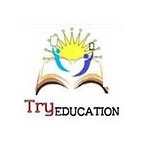Preschool Education
What is Preschool Education?
Preschool Education? Preschool is a learning space offering early childhood education to children before they begin compulsory education. Preschool education includes such programs like nursery school, day care and kindergarten. Preschool education is an important component of the development of children. Investment in such programs can go a long way to support the development of good citizens for the future. Preschool education programs are designed specifically for three to five years olds, provided in childcare, nursery school system or pre-kindergarten classrooms.
Proper Age for Preschool
Every year of a child is precious, but the first five are the most important for development. In preschool children learn appropriate behaviour, boundaries, empathy and many other important social skills that remain with them for life.
What do children learn in Preschool?
Preschool helps children to get new knowledge and skills through playing and interacting with other children. Children make new friends and develop new relationships in a relaxed environment. In preschool children learn following activities:
Number, Counting
Children start to learn the foundation of math that generally includes
numbers from one to ten and counting up to ten or twenty.
Basic Shapes
Children will start to learn basic shapes which are the foundations of
later learning in geometry.
Colours
This activity includes the learning of name and identify colours which
helps in development of language and creativity of children.
Alphabets
Kids learn alphabet through singing ABC songs. They start to learn
letters sounds and words making, essential for pre-reading skills.
Fine Motor Skills
Fine motor skills are very important in preschool. Kids are tuning their
pincer grip and finger strength through arts and crafts and sensory play.
Gross Motor Skills
Preschools develop gross motor skills in children including outdoor
activities and dancing.
Social Skills and Independence
For many children preschool is their first time away from their parents
for a significant time. It’s a good time for them to build confidence,
independence and valuable social skills through cooperative play with their
classmates and teachers.
Attention
To learn the ability to sit still and listen for more than a few minutes
is the hardest thing for children. In preschool children learn this essential
skill for success in school.
Early Writing Skills
Letting the child scribble may looks like fun and games, but it’s actually the beginning of writing skills.
Importance of Preschool
Preschool education is very important for child’s emotional, social and personal growth and development. Although a child learns how to talk at home but in preschool continuous interaction with children of same age group and teachers helps them to enhance their communication skills.
Play Time in Preschool
Play is one
of the best ways in which children learn and develop because they can develop
language skills, emotions, creativity and social skills. Play grows child’s
imagination and sense of adventure.
Preschools provide appropriate environment and unstructured free play time for healthy games.
Parents Role in Early Education
Notice your child from an early age.Spend time with your child in learning processProvide a wide range of creative and problem solving activities to your child.listen your child with attentionarrange some physical activities at homeArrange some outdoor trips to fulfil their adventures needs.
Preschool Curriculum
Opportunity for growth Preparing children for KindergartenSocial and emotional development Structured environmentChoice makingTaking care of themselves Language and cognitive skills
opportunityNurturing the child’s curiosityBoosting pre-math skillsDeveloping motor skills
